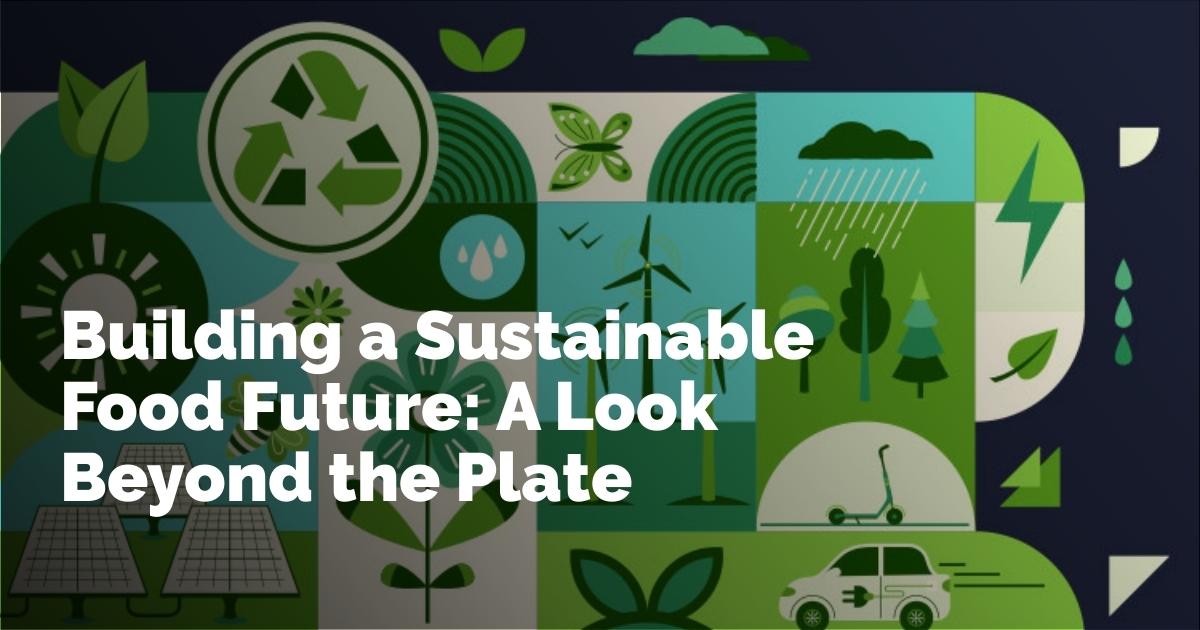Looking Beyond the Plate: Building a Sustainable Food Future
Food is more than just a necessity for the present; it is about laying the foundation for a sustainable, balanced future. This notion was at the center of discussion at Copenhagen’s annual MAD Festival, a symposium uniting chefs, producers, and policymakers to explore strategies for transforming food systems. MAD is a global nonprofit based in Copenhagen with a mission to equip the next generation of food industry professionals with the necessary knowledge, tools, and inspiration to drive their businesses forward, make the industry fair, and ensure truly sustainable food systems worldwide.
I attended the festival in 2025, delving deeply into conversations about sustainability, regenerative agriculture, and the future of food with industry leaders. This experience reinforced my belief that meaningful progress in the food industry is not about quick wins but about creating lasting change by thinking beyond immediate results. During the festival, five key themes emerged that exemplify the need for forward-thinking approaches in reshaping food systems.
Regenerative Agriculture
Regenerative agriculture and soil health were prominent topics at the festival. Advocates called for soil restoration techniques that enhance biodiversity and support carbon capture. Restaurateurs are beginning to recognize their role in supporting farmers who implement sustainable practices, integrating hyper-local ingredients into their menus to ensure that culinary traditions thrive while protecting the environment.
A particularly memorable moment was when four young Icelandic fishing guides presented a compelling argument against sea-farmed salmon. These seventh-generation guides, which included two sets of sisters in their late teens and early twenties, were among the first female fishing guides in Iceland. They emphasized the preservation of wild fish populations and sustainable fishing practices, underscoring the importance of long-term thinking in food systems. Their presentation reinforced the idea of 'cathedral thinking,' a concept closely linked to the sustainability narrative.
Cathedral Thinking
One of the most impactful ideas discussed at MAD was ‘cathedral thinking,’ the concept of planning for a legacy that one may never personally witness completed. This idea originates from medieval times when builders laid the foundations of cathedrals with the understanding that they may never see the structures finished. In a modern context dominated by a demand for instant results and short-term gains, this mindset might seem unusual, but it is vital to addressing some of the most significant sustainability challenges.
Many environmental solutions, such as regenerative farming or biodiversity conservation, require decades to manifest. Cathedral thinking encourages businesses to commit to long-term strategies that will benefit future generations instead of focusing solely on immediate achievements. This philosophy resonates with our work at The Flava People, where we strive for future-proof food solutions rather than following short-lived trends. Our support for new Community Grocery stores is a reflection of this long-term commitment, aiming to create a food system where accessibility and sustainability are interconnected.
Tech-driven Culinary Innovation
Technology is pivotal in fostering culinary innovation. Tools like artificial intelligence and precision fermentation are transforming food production, enabling the creation of alternative proteins with minimal environmental impact. Smart kitchens and data-driven sustainability measures are allowing restaurants to optimize energy use and reduce waste, demonstrating how innovation can be used for progress while prioritizing ethical considerations.
Circular Food Systems
Circular food systems and waste reduction were also key topics of discussion. The festival highlighted closed-loop food systems, where waste is transformed into new products through initiatives like composting and innovative uses of food byproducts. More chefs are embracing zero-waste cooking, utilizing every part of an ingredient to minimize environmental impact. Long-term solutions are needed to ensure that waste management extends beyond individual enterprises. Our partnership with The Community Grocery reflects our dedication to this mindset by bridging the gap between food banks and discount retailers, redistributing surplus food and making essential groceries more affordable for families in need.
Cultural Preservation through Food
The theme of cultural preservation through food emerged as essential. Food plays a crucial role in safeguarding heritage, and there is increasing emphasis on traditional cooking methods and forgotten techniques. Chefs are reviving these practices to ensure culinary history is preserved. Celebrating indigenous food knowledge and Nordic culinary traditions serves as a bridge connecting the past and future, ensuring that the richness of cultural identity remains integral to the evolution of the food industry. This connection not only fosters a deeper understanding of what we eat but also the history that accompanies it.
Reflecting on my time at the MAD Festival in Copenhagen, I believe that by embracing cathedral thinking and sustainability throughout the entire food system, we can envision a future of food that transcends merely what's on the plate. The choices we make today, both individually and as businesses, hold the power to shape a healthier and more resilient world for tomorrow. What we eat should contribute to laying the groundwork for this sustainable future.
출처 : Original Source

